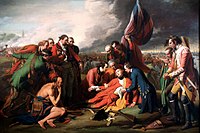History of British Columbia

British Columbia is a big and beautiful province in Canada, way out on the west coast. But a long, long time ago, before many of us were even born, it was a very different place. It was home to many First Nations peoples who had different languages, cultures, and ways of living. They lived off the land, fishing, hunting, and gathering food from the forests, rivers, and oceans.
Around the 1700s, people from Europe started arriving in British Columbia, and they began exploring and settling the land. One of the first to arrive was Captain Cook, who was sent by Britain to explore the Pacific Northwest coast. Others followed, including fur traders, gold miners, and loggers who were looking for resources to take back to Europe.
In 1846, Britain and the United States agreed on a border that put what is now British Columbia on the British side. But it wasn't until 1858 that the British government created the Colony of British Columbia, officially making it a part of Britain's growing empire. However, the colony struggled at first because there weren't enough people or resources to build infrastructure like roads, schools, and hospitals.
That all changed in 1858, when gold was discovered in the Fraser River. People from all over the world flocked to British Columbia to strike it rich, including many from America, China, and Europe. The gold rush brought more people, money, and energy to the colony, and it grew rapidly. In 1871, British Columbia joined Canada as its sixth province.
British Columbia has a unique history because of its diverse peoples and cultures, as well as its location on the Pacific coast. It has a rich Indigenous history and heritage, as well as a colonial and post-colonial history that continues to shape the province to this day. It is a place with a lot of natural beauty and resources, and has become one of the most vibrant and dynamic places in Canada.
Around the 1700s, people from Europe started arriving in British Columbia, and they began exploring and settling the land. One of the first to arrive was Captain Cook, who was sent by Britain to explore the Pacific Northwest coast. Others followed, including fur traders, gold miners, and loggers who were looking for resources to take back to Europe.
In 1846, Britain and the United States agreed on a border that put what is now British Columbia on the British side. But it wasn't until 1858 that the British government created the Colony of British Columbia, officially making it a part of Britain's growing empire. However, the colony struggled at first because there weren't enough people or resources to build infrastructure like roads, schools, and hospitals.
That all changed in 1858, when gold was discovered in the Fraser River. People from all over the world flocked to British Columbia to strike it rich, including many from America, China, and Europe. The gold rush brought more people, money, and energy to the colony, and it grew rapidly. In 1871, British Columbia joined Canada as its sixth province.
British Columbia has a unique history because of its diverse peoples and cultures, as well as its location on the Pacific coast. It has a rich Indigenous history and heritage, as well as a colonial and post-colonial history that continues to shape the province to this day. It is a place with a lot of natural beauty and resources, and has become one of the most vibrant and dynamic places in Canada.
Related topics others have asked about:
